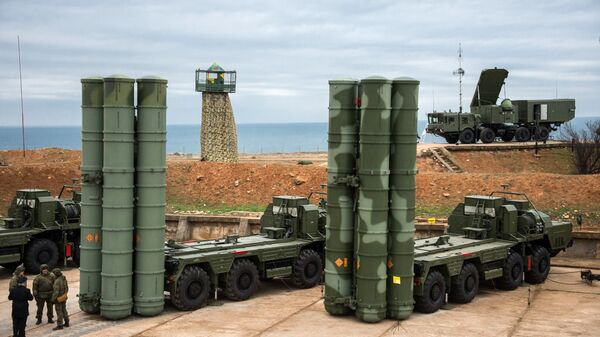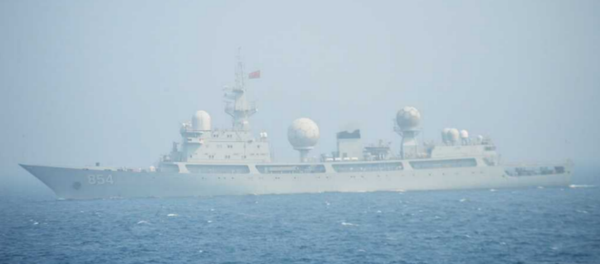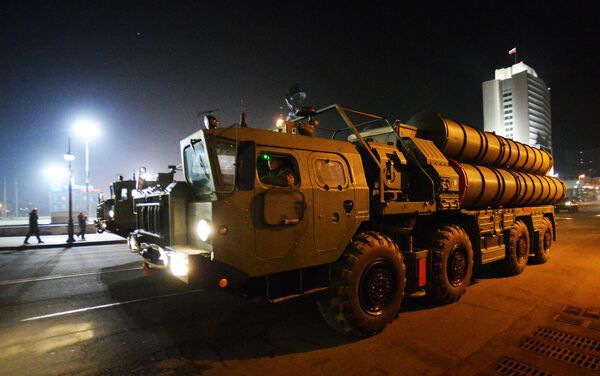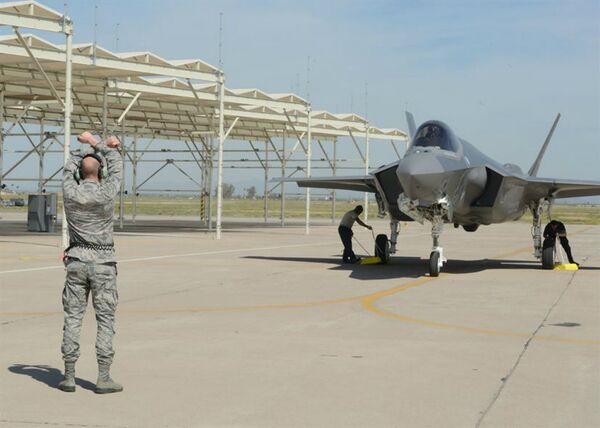Besides boosting US military spending to $717 billion, the John S. McCain National Defense Authorization Act for Fiscal Year 2019, passed by the US Senate on August 1, places a special emphasis on Russia and China, named Washington's "potential adversaries" along with Iran, and "punishes" Turkey for the acquisition of S-400 missiles.
Commenting on the bipartisan legislation, American peace activist and founder of "Show Up! America" Jan R. Weinberg noted that "the armament industry has asserted a firm grip on our elected officials; exerting their undue influences not only through 'legalized bribery' but through the technique of establishing their business and manufacturing plants within all 50 states."
The legislation authorizes $69 billion for overseas contingency operations, envisages further investments to modernize the US nuclear deterrent, allocates funds for the construction of new battleships and aircraft, and establishes a sub-unified command for space under the Strategic Command, proclaiming space a "warfighting domain."
"The militarization of space is inevitable — the corporations want it so," Weinberg remarked.
However, besides financial issues the bill addresses political matters.
Pentagon to Boost Military Presence on Russia's Borders
The John McCain NDAA prohibits military-to-military cooperation with Russia, while at the same time however, retaining bilateral military-to-military dialogue between the countries "for the purpose of reducing the risk of conflict."
The bill also prohibits Washington from officially recognizing Crimea's reunification with Russia and allocates $250 million for lethal defensive arms for Ukraine.
It prioritizes "the need for additional United States Army forward presence in Europe" and "increased forward-stationed combat enablers to enhance United States Army capability and capacity" in order to "deter Russian aggression."
In addition, the bill's authors set eyes on Russia's security cooperation with Cuba, Nicaragua and Venezuela, countries once regarded by Washington as its "backyard."
It obligates the Director of the Defense Intelligence Agency (DIA) to present a report on military collaboration between the countries, including a "list of Russian weapon systems or other military hardware or technology valued at not less than $1,000,000 provided to or purchased by such country since January 1, 2007."

McCain's Bill Cracks Down on China
The bill prohibits the Pentagon from using China's communications services, systems and equipment, specifically ZTE and Huawei Technologies, citing security concerns.
It also stipulates that the Pentagon must find out "the relationship between Chinese overseas investment, including initiatives such as the Belt and Road Initiative, and Chinese security and military strategy objectives."
Furthermore, the legislation envisions bolstering defense ties with Taiwan, regarded by Beijing as China's "breakaway province."
"The United States should strengthen defense and security cooperation with Taiwan to support the development of capable, ready, and modern defense forces necessary for Taiwan to maintain a sufficient self-defense capability," the legislation says, adding that the Pentagon should step up joint military exercised with Taipei."
According to Weinberg, US lawmakers are acting much in the vein of the Obama-era "Pivot to Asia," aimed at containing China through bolstering military collaboration with its immediate neighbors.
"Do the US think tanks ever consider that China has been and will be reacting because the United States makes clear its concerns that a rising China is perceived as a threat to US hegemonic interests within the Indo-Asia-Pacific?" he asked rhetorically.
Commenting on the proposed bill, the US peace activist highlighted India's role in Washington's China strategy: "India was considered to be the westernmost nation within the militarization aspect of Obama's Pivot to Asia," he noted.
Turkey's Looming Expulsion From F-35 Program
US lawmakers are not inclined to let Turkey go "unpunished" for the upcoming acquisition of Russian-made S-400 missile defense systems: The new legislation envisions the potential expulsion of Turkey from the F-35 program.
The bill's authors insist that any effort by Ankara "to further enhance their relationship with Russia will degrade the general security of the NATO alliance, and NATO member countries, and degrade the interoperability of the alliance."
Besides Turkey's potential removal from the F-35 program, the legislation demands that "the transfer of any F-35 aircraft currently owned and operated, by the Government of the Republic of Turkey, from the territory of the United States" should be prohibited until a report is issued on Turkey's behavior.
'Washington's Expansionism to Backfire on US Economy'
Commenting on the rhetoric and the spirit of the bill, the US peace activist suggested that once adopted it will further escalate tensions and push global powers to a new "unprecedented arms race."
According to Weinberg, the US military muscle-flexing will have a negative impact on the country's economy:
"In the long run, if the cornerstone of United States foreign policy continues to be that of military expansionism and should China's Belt Road Initiative (BRI) and the BRICS initiatives (with Brazil, Russia, India, China and South Africa) became firmly established, then in my estimation the United States economy will severally deteriorate."
The legislation was introduced in the House of Representatives on April 13, 2018. After subsequent discussions, the amended bill was passed by the House on July 26, and on August 1 it was approved by the Senate. Very soon the H.R.5515 John S. McCain NDAA could be signed into law by US President Donald Trump.
Jan R. Weinberg is American Peace Movement activist and founder of @ShowUpAmerica non-profit organization.
The views and opinions expressed by Jan R. Weinberg and Ekaterina Blinova are those of the contributors and do not necessarily reflect those of Sputnik.







